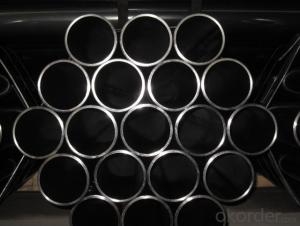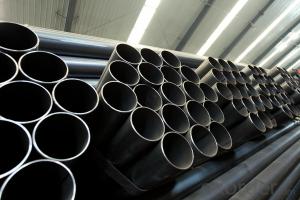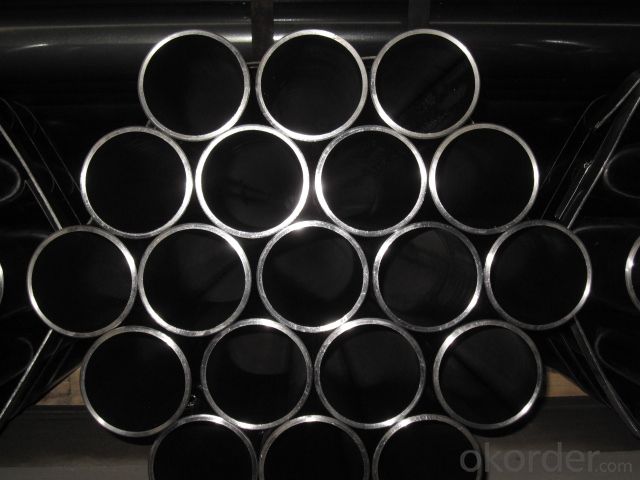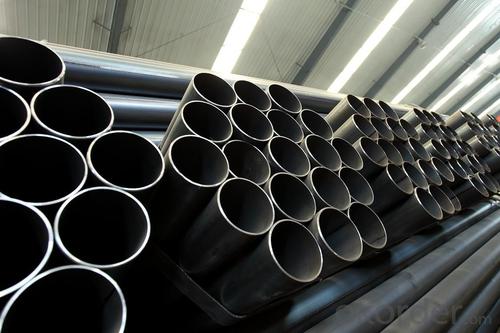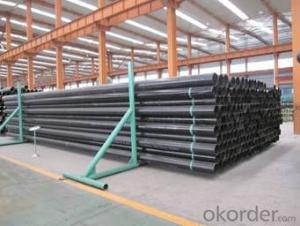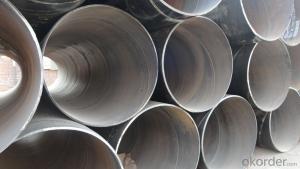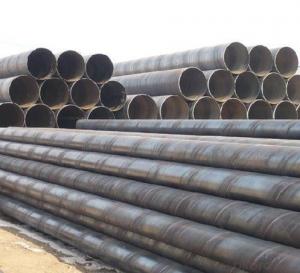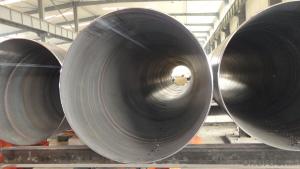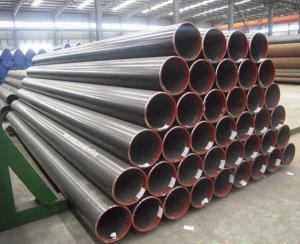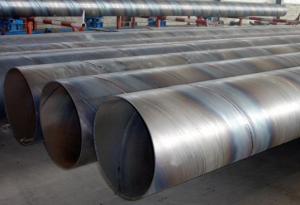ERW drive shaft tubes hot rolled steel pipes
- Loading Port:
- China Main Port
- Payment Terms:
- TT OR LC
- Min Order Qty:
- -
- Supply Capability:
- -
OKorder Service Pledge
OKorder Financial Service
You Might Also Like
Specifications
1.Hot Rolled/Expanded Seamless Steel Pipe
2.Standard:GB/T 8162 ASTM A519 EN 10297-1 JIS G3445
3.Marterial:10 20 35 45 16Mn
Products descriptions
1.Name:Seamless steel pipe for automotive
2.Standard:GB/T 8162 ASTM A519 EN 10297-1 JIS G3445
3.Marterial:10 20 35 45 16Mn 1020 1045 1541 E275 E315 34CrMo4 42CrMo4
Scope: Covers several grades of carbon and alloy steel seamless mechanical tubing. This specification covers both seamless cold-drawing mechanical tubing and seamless cold-rolling mechanical tubing.
Size Range: Covers tubes in size up to 80mm outside diameter for round tubes with wall thicknesses 1mm-14mm
Shape: The tubes shall be furnished in the following shapes, as specified by the purchaser: round, square,rectangular,hexagonal and special sections.
Marking: as per customer's requirement,your drawing or sample are welcomed.
Dimensions, Mechanical properties, Chemical compositions:
Refer to relative standard as per clients requirements
Packing :Bundles, seaworthy packing
With or without edge protector, steel hoop and seals, or as per customers' requirements
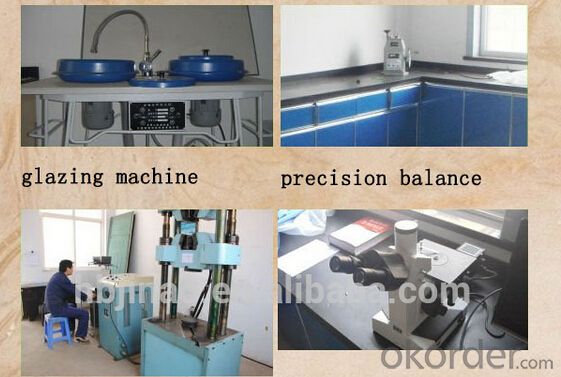
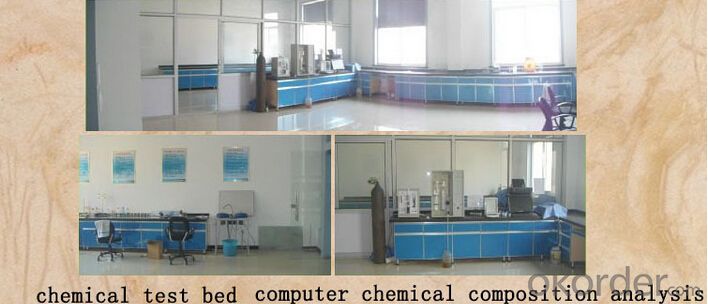
- Q: How are steel pipes used in the fabrication of storage tanks?
- Steel pipes are commonly used in the fabrication of storage tanks due to their strength, durability, and versatility. These pipes serve various purposes throughout the tank fabrication process. Firstly, steel pipes are used for the construction of the tank's foundation. They provide a sturdy base for the tank, ensuring stability and preventing any potential structural issues. During the tank fabrication process, steel pipes are also used for the construction of the tank's shell. These pipes are welded together to create a cylindrical structure that can withstand the pressure and weight of the stored material. Furthermore, steel pipes are utilized for the installation of inlet and outlet pipes. These pipes allow for the controlled flow of materials into and out of the storage tank. Additionally, steel pipes are often used for the fabrication of support structures within the tank. These structures help to distribute the weight of the stored material and provide additional reinforcement to the tank. In terms of maintenance and repair, steel pipes are also essential. They are used for the installation of access points, such as manholes or inspection ports, which allow for routine inspections, cleaning, and any necessary repairs. Overall, steel pipes play a crucial role in the fabrication of storage tanks by providing a strong and reliable framework. They are used for the construction of the tank's foundation, shell, inlet and outlet pipes, support structures, and access points. With their durability and versatility, steel pipes ensure the integrity and functionality of storage tanks.
- Q: What are the common applications of galvanized steel pipes?
- Galvanized steel pipes are commonly used in various industries and applications such as plumbing, water supply systems, gas pipelines, electrical conduits, construction projects, fencing, and outdoor structures. The galvanization process adds a protective zinc coating to the steel, making it resistant to corrosion and extending its lifespan, making it ideal for applications requiring durability and longevity.
- Q: Can steel pipes be used for underwater applications?
- Yes, steel pipes can be used for underwater applications. Steel pipes are known for their durability and corrosion resistance, making them suitable for various underwater purposes such as offshore oil drilling, underwater construction, and marine transportation. Additionally, steel pipes can withstand the high pressure and harsh environmental conditions present underwater, making them a reliable choice for such applications.
- Q: Can steel pipes be used for heating and cooling systems?
- Yes, steel pipes can be used for heating and cooling systems. Steel pipes are commonly used in HVAC (heating, ventilation, and air conditioning) systems as they have excellent heat transfer properties, durability, and can withstand high-pressure conditions. Additionally, steel pipes are resistant to corrosion, making them suitable for both heating and cooling applications.
- Q: Can steel pipes be used for transporting slurry?
- Steel pipes can indeed be utilized for the transportation of slurry. They find widespread application in several industries, such as mining, construction, and oil and gas, where they serve the purpose of conveying various types of fluids, including slurry. Slurry, typically comprising solid particles suspended in a liquid, primarily water, poses no challenge for steel pipes, as they possess the necessary robustness and endurance to handle its abrasive characteristics. Moreover, steel pipes exhibit exceptional resistance against corrosion, a crucial factor when confronted with slurry that may contain corrosive elements. Furthermore, the sleek interior surface of steel pipes plays a significant role in minimizing friction and ensuring the smooth and efficient flow of the slurry. In conclusion, steel pipes stand as a dependable and widely preferred option for the transportation of slurry due to their strength, durability, resistance to corrosion, and smooth inner surface.
- Q: What is the difference between steel pipes and copper pipes?
- Steel pipes and copper pipes differ in their material composition, durability, cost, and application. Steel pipes are made of an alloy of iron and carbon, providing them with high strength and resistance to corrosion. Copper pipes, on the other hand, are made solely of copper, which offers excellent heat conductivity and resistance to bacterial growth. While steel pipes are more durable and suitable for high-pressure applications, copper pipes are commonly used for plumbing systems due to their malleability, ease of installation, and ability to withstand extreme temperatures. Additionally, copper pipes tend to be more expensive than steel pipes.
- Q: Can steel pipes be used for conveying natural gas?
- Yes, steel pipes can be used for conveying natural gas. Steel pipes have been widely used in the natural gas industry due to their strength, durability, and ability to withstand high pressure. Additionally, steel pipes are resistant to corrosion and provide a secure and reliable method for transporting natural gas over long distances.
- Q: What are the future trends in steel pipe manufacturing?
- Some of the future trends in steel pipe manufacturing include the use of advanced automation and robotics, the development of high-strength and lightweight steel materials, the implementation of sustainable and environmentally friendly manufacturing processes, and the integration of digital technologies for improved quality control and efficiency. Additionally, there is a growing focus on developing steel pipes with enhanced corrosion resistance and durability to meet the demands of various industries such as oil and gas, construction, and automotive.
- Q: Can steel pipes be used for oil transportation?
- Yes, steel pipes are commonly used for oil transportation due to their high strength, durability, and resistance to corrosion.
- Q: Can steel pipes be used for gas transmission pipelines?
- Yes, steel pipes can be used for gas transmission pipelines. Steel pipes are commonly used in the construction of gas transmission pipelines due to their durability, strength, and resistance to corrosion. Additionally, steel pipes can withstand high pressure and extreme temperatures, making them suitable for the transportation of natural gas over long distances.
Send your message to us
ERW drive shaft tubes hot rolled steel pipes
- Loading Port:
- China Main Port
- Payment Terms:
- TT OR LC
- Min Order Qty:
- -
- Supply Capability:
- -
OKorder Service Pledge
OKorder Financial Service
Similar products
Hot products
Hot Searches
Related keywords
